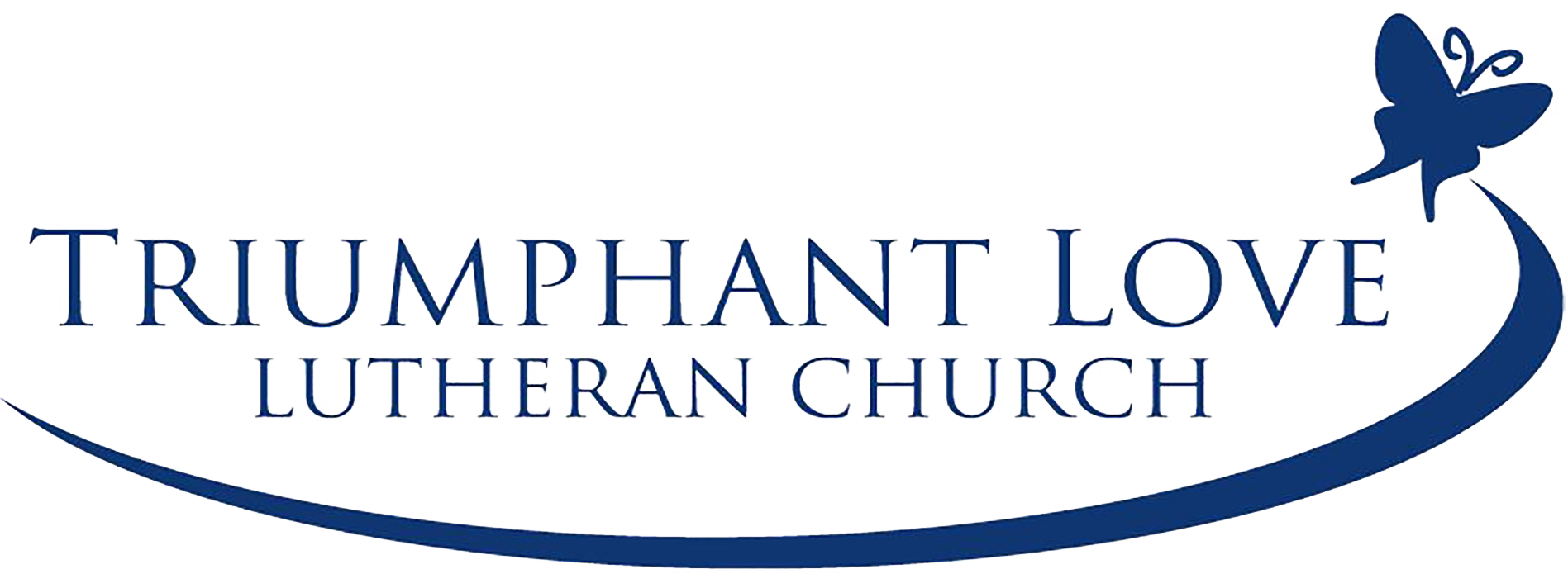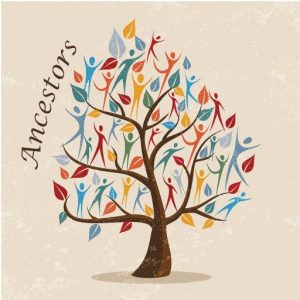Join us for our Pastor’s Bible Study series
January 19 – February 24
Class Options:
Wednesdays at 1:00PM online (email info@tllc.org for the ZOOM login link)
Thursdays at 1:00PM in-person (with masks and social distancing in the Upper Room).
Grab your favorite Bible and come for either class or join us for both to branch out further in your study!
If you can’t join at these times, we can connect you to videos to watch on your own schedule.
Section 2 (Spring 2022)
Ancestors: Rooted in Our Faith Family Tree. In this 6-week session, we will study various matriarchs of our faith from the New Testament and explore how their stories might enhance, expand, and form our faith from roots to fruit.
January 19/20 Introduction
Mary, Mother of Our Lord
Mother of Our Lord, Young Servant of God, Faithful Follower, God-bearer! The stories of these Biblical women are unique and intriguing and continue to show how God uses the most interesting of characters to continue the covenant. In Mary, God chooses a young, “no count” girl from the Podunk town of Nazareth to bear the Christ child. Like most mothers, there is more to her story than simply being a mother (even if she is the mother of Jesus). With parts of Mary’s story being so familiar to us, we feel like we know everything about her. But do we? What can we learn from this Biblical matriarch – our ancestor in the faith – about ourselves and our God?
January 26/27
Elizabeth & Anna
OWLs – Old, Wise Ladies! OWLs is a term of endearment I have bestowed on a few important women of faith in my life. The stories of both Elizabeth and Anna make me think we could use the same acronym to describe them. In Elizabeth, God chooses an old, barren, seemingly forgotten woman to birth the forerunner of Jesus, John the Baptist. Like most mothers, there is more to her story than simply being a mother. In Anna, God speaks to a young mother through the voice of an elderly widow. What can we learn from these OWLs about ourselves and how might we be such OWLs for others ourselves?
February 2/3
Mary & Martha of Bethany
Having a Mary Heart in a Martha World was a popular book several years ago. Growing up I often felt that we pitted the discipleship of these two sisters against each other, and yet there is much I can see in both of them that make them exemplars of faith. Luke portrays Martha excelling in service and Mary in listening, but John shows that they held in common grief and faith in the face of their brother Lazarus’ death. What can we learn from these sisters about the different ways of following Christ? What can we learn about ourselves and God from these ancestors in the faith?
February 9/10
Mary of Magdala
Will the real Mary Magdalene please stand up? In the gameshow To Tell the Truth, three people are presented to be a certain person – 2 are acting and 1 is real – and panelists had to guess who was the real person. Something like that has happened throughout time to Mary Magdalene, only she was not part of the game. Perhaps accidentally because of the sheer number of women named Mary in the gospels or perhaps intentionally because she achieved notoriety and likely leadership in the early church movement despite being a woman, her character and her discipleship have been maligned. This week we will ask, “Will the real Mary Magdalene please stand up?” What can we learn from this matriarch of the faith, who was significant enough in the early church movement to have her own gospel?
February 16/17
The Samaritan Woman at the Well
“It is well with my soul” so the old hymn goes. Wells hold great significance in the Bible as they provided sustenance and life. In this passage, that is made clear both physically and spiritually in the conversation between the woman and Jesus. Jesus points to himself as the source of living water. Through the woman’s witness, the whole community hears about Jesus and comes to believe. If the Samaritans were considered the “black sheep” of the Jewish family, what can we learn from this Samaritan woman about what it means to be Christian? Should we include her in our faith family tree?
February 23/24
Lydia, Phoebe, Prisca, and Junia
Women’s leadership in the early church was diverse. Paul is well-known amongst scholars for sending somewhat “mixed messages” about women’s leadership in his letters, but there is no way around recognizing that women were active in the early church in leadership roles such as disciple, deacon, and apostle. Yet, it was not until recently that these women were acknowledged for their contributions as ancestors of the faith. What can we learn from these women about the diverse callings they answered and the ways our own gifts can be used in the church today?
Section 1 (Fall 2021)
Ancestors: Rooted in Our Faith Family Tree. In our first 8-week session, we will study various matriarchs of our faith from the Old Testament and explore how their stories might enhance, expand, and form our faith from roots to fruit. (Dates are in reverse order)
December 1/2
Esther
Rise, Reveal, Reverse, and Redeem! When Esther is chosen as queen in a Gentile land, she uses what power she has to save her people from death and destruction at the hands of the king and his vizier Haman. Each year, Jews celebrate this story of salvation and redemption in the festival of Purim. What can we learn about ourselves and our God from this Biblical matriarch?
November 10/11
Abigail & Judith
Prudence, Peace, and the Power of Prayer! When Abigail’s boorish husband refused the customary hospitality to David and his men, she prudently persuades David not to retaliate with a generous peace offering. Later, with her husband dead, David takes Abigail as his wife. Judith on the other hand uses prayer in a powerful way that is not at all peaceful as she saves Israel from King Nebuchadnezzar and his warriors. What can we learn from these Biblical matriarchs with their vastly different stories about ourselves and our God?
October 27/28
Dinah, Tamar & Bathsheba
Lest History Repeat Itself! Sometimes the stories of the Bible teach by negative example – what NOT to do. The stories of these three women are likely just such stories. How well have we heeded their warning cries? While sometimes Biblical stories entreat us to follow in footsteps, these seem to say, “Don’t let this happen again!” As we have learned from matriarchs of faith what to do, how can they also teach us what not to do? More importantly, how does God still continue to bring redemption from such difficult and demeaning circumstances?
October 20/21
Ruth & Naomi
Moabite Marriage, People, and Purpose! The book of Ruth is one of only two Biblical stories named for a woman. It is a microtale of women living in a patriarchal society. Ruth, the Moabite daughter-in-law of Naomi promises to stay faithful to her despite her husband’s death saying, “Your people will be my people and your God my God.” Eventually her faithfulness leads to marriage and places her in the pages of the genealogy of both King David and Jesus fulfilling her purpose and God’s. What can this story of our faith ancestor tell us about how God works through people.
October 13/14
Miriam & the Midwives, Rahab, Deborah, & Jael
Smart sisters and cunning midwives, helpful harlots, prophets and powerful peg masters make their mark this week! The stories of these Biblical women are unique and intriguing and continue to show how God uses the most interesting of characters to continue the covenant. Their stories have been handed down in songs and poetry on papyrus and gilded Bible pages so they must be important. What can we learn from these Biblical matriarchs – our ancestors in the faith – about ourselves and our God?
October 6/7
Rebekah, Rachel & Leah
Birthrights, Beauty, and Barrenness… oh my! The stories of these Biblical women unfold with all the drama of a soap opera! Rebekah cunningly secures birthright and blessing for her favored son Jacob, who later marries two sisters, Rachel and Leah. Rachel is Jacob’s favorite – beautiful but barren. Leah is his first wife – fertile but forgotten. The stories of Biblical women often stay in the margins. Using such historical fiction as The Red Tent we will explore how these women might tell their own stories if they had the chance.
September 29/30
Sarah & Hagar
Look towards the heavens and count the stars… so shall your descendants be. This week we’ll review the stories of Sarai (Sarah) and her slave Hagar, examining how the promise of heir was elusive but finally accomplished not because of how humans try to solve the problem on their own but by God’s faithfulness. We will discuss how women used (and misused) what little power they had in ancient society and how God sees all women and does not abandon them.
September 22/23
Introduction
Eve & Lilith
In the beginning… God created woman. This week we’ll look at women in the creation stories (Genesis 1-3). We will dive into the differences of the two accounts, and what each has to say about women, as well as the Biblical character Eve. We will also briefly touch on the extra-Biblical creation character, Lilith, who appears in the Jewish Talmud, and why female Biblical scholars have lifted her story into Christian awareness in recent decades.
Contact info@tllc.org for more information.


